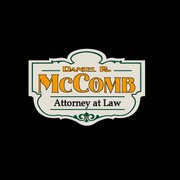
Whether you file as an individual, a married couple, or a business owner, completing a Chapter 7 bankruptcy can release you from burdensome debts. Often called liquidation or straight bankruptcy, this federal court proceeding helped 8.7 million filers between 2005 and 2017. Here’s what you should know about how to stop paying your creditors.
A Guide to Chapter 7 Bankruptcy
What Chapter 7 Bankruptcy Does
 Filing a bankruptcy petition under Chapter 7 of the United States Bankruptcy Code stops all collection actions and puts your assets and debts under a trustee’s administration. The trustee has the power to collect and sell the non-exempt property to pay creditors. At the end of the case, the court grants you a discharge, wiping out any unpaid debts. By claiming exemptions, you can keep certain property such as furniture, jewelry, clothing, retirement accounts, and a vehicle to give you a fresh financial start.
Filing a bankruptcy petition under Chapter 7 of the United States Bankruptcy Code stops all collection actions and puts your assets and debts under a trustee’s administration. The trustee has the power to collect and sell the non-exempt property to pay creditors. At the end of the case, the court grants you a discharge, wiping out any unpaid debts. By claiming exemptions, you can keep certain property such as furniture, jewelry, clothing, retirement accounts, and a vehicle to give you a fresh financial start.
When Should You File?
If you’re facing actions including home foreclosure, car repossession, a creditor lawsuit, or wage garnishment, you can stop the proceeding by filing a Chapter 7 bankruptcy petition. If you’re carrying high amounts of unsecured debt, such as credit cards, signature loans, or medical bills and you have few or no high-value assets, you may be a good candidate for Chapter 7 bankruptcy.
How Chapter 7 Compares to Chapter 13
Chapter 7 is a short process, lasting about six months from filing to discharge. You don’t make any payments to creditors. Chapter 13 takes three to five years to complete, and you pay creditors under a court-approved plan. If you have a regular source of income, need to catch up payments on a real estate mortgage, or want to keep non-exempt property, you might consider Chapter 13.
Genesee County residents look to Daniel R. McComb, Attorney at Law in Batavia, NY, for guidance in completing their Chapter 7 and Chapter 13 bankruptcy processes. This lawyer has over 35 years of legal experience. The firm will provide compassionate representation that focuses on addressing your circumstances and achieving your goals. Stop struggling with debt. Call (585) 343-2250 or visit his website to schedule a free and confidential attorney consultation.
About the Business
Have a question? Ask the experts!
Send your question

